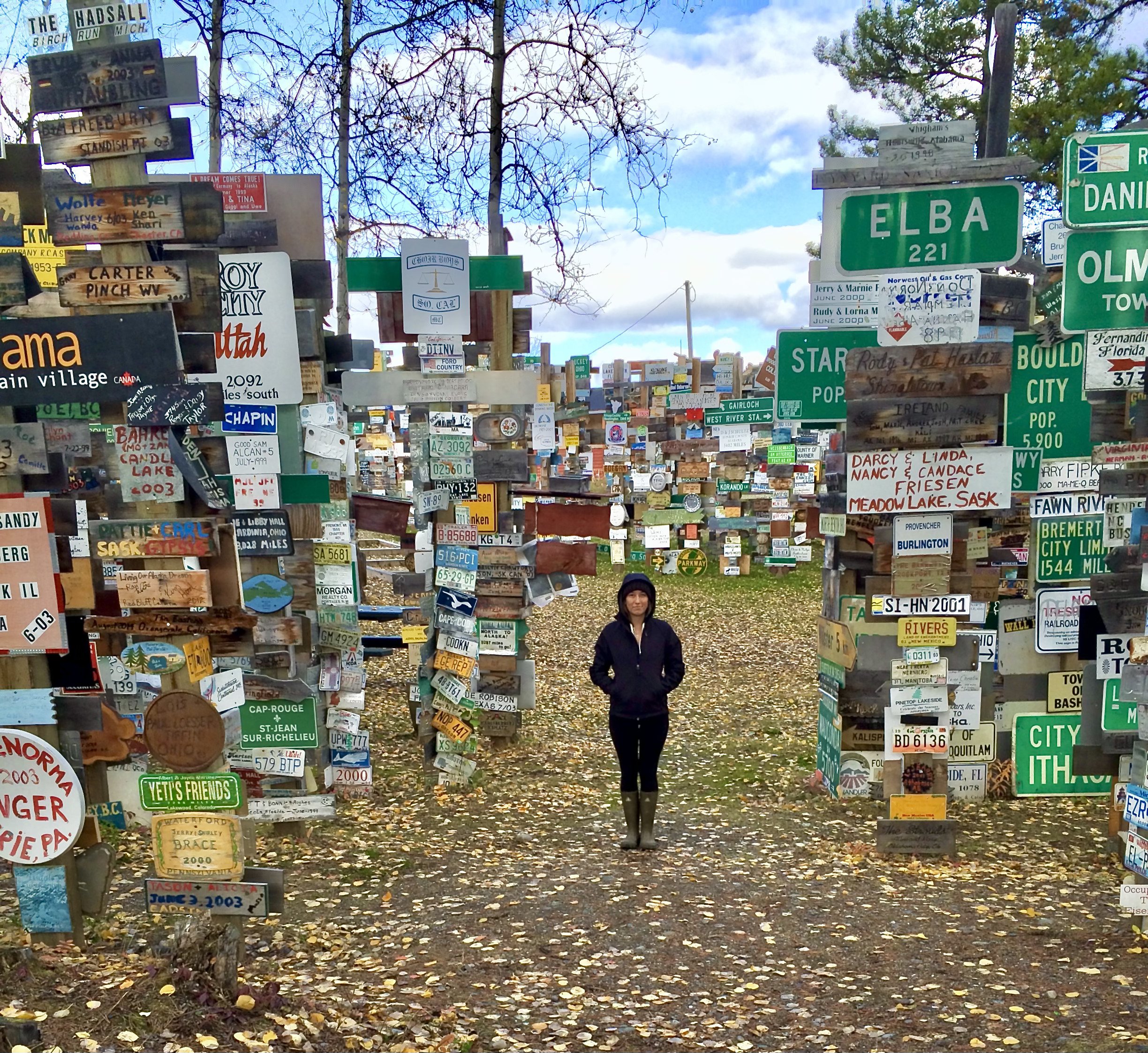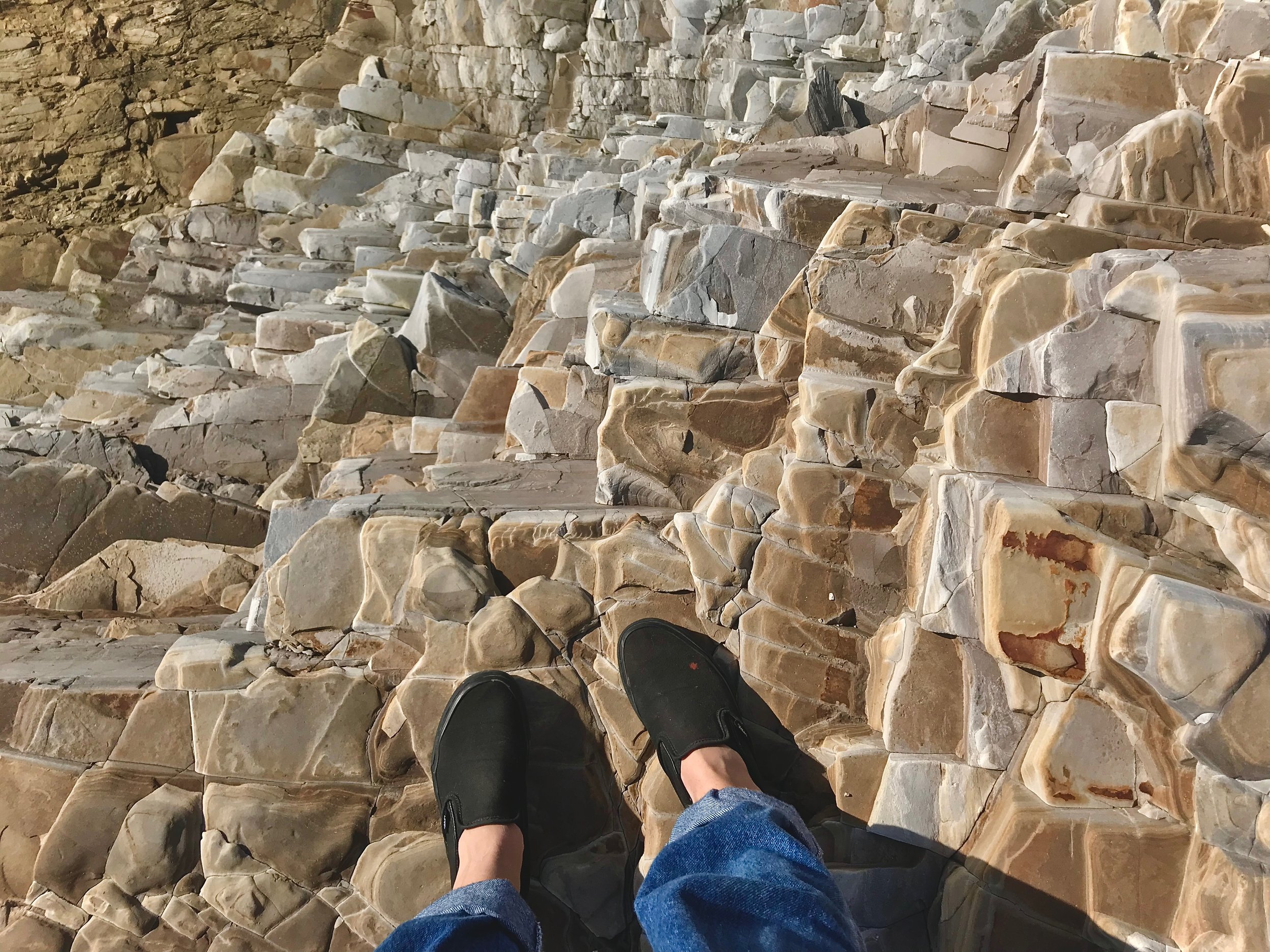I’m coming around to a core truth of the universe, and I believe it can be summed up best by the poet, philosopher and individualist, Ke$ha, who said in one of her time honored lyrics, “Everybody makes mistakes, everybody has those days.” And as I ponder the nature of mistakes, why we make them, how we assess them, I’ve uncovered a deeper truth about mistakes. Namely that they are, and always have been, exactly what they’re supposed to be.
Leading me to the thought that perhaps we could learn a thing or two about mis-takes from theatre. In the theatre you don’t just give someone a script, as you immediately start filming. You don’t invite the audience to the first reading. You give the actors time to adjust to the material, time to try on different methods of expression, and different inflections in every line. You give them time to understand the material and make it their own; in other words, you offer them ample room for mis-takes. While some might find themselves frustrated at the imperfection of the learning cycle, most would graciously understand that this process is exactly what takes an actor from good, to great, to awe-inspiring. Beyond that, without this process we would have a dreadfully dull, boring theatre full of half-hearted, destined to fail pieces of work.
What I’m saying is this: perhaps we are too hard on ourselves for our mistakes. Perhaps we are missing the entire point when it comes to making them. Mistakes are how we learn in the theatre of life. There is no rulebook for being human, there’s a rights ‘book’ [the bill of human rights] from which we can infer what proper treatment of others is. Inspired largely by what we would consider proper treatment of ourselves by others would be. Because all humans are innately selfish, meaning at our core, our main concern is always going to be taking care of ourselves against all odds.
“The nature of self-love and of this human Ego is to love self only, and consider self only.”
-Pascal’s Pensees p. 42
This isn’t something to condemn in each other, but something to celebrate, for it furthers the notion of personal responsibility, personalizing it through primal pathways of thought. If I am the only one here who will truly be able to take care of myself in every situation, then I am the one with the most responsibility to do so in this world. And since I am not given a rule book at birth, but only a rights book I am intrinsically required to piece together the puzzle that is human existence. Not for the sake of anyone else, but so that I may live a good life, one worthy of my own existence. Furthermore, no one else may tell me what that looks like, only I can understand that for myself through lifelong trials and errors, that build on my own personal code of conduct.
So are mistakes really the unforgivable devils we make them out to be, or are they truly our greatest allies in this life?
I believe that if we looked at mistakes and saw them clearly for what they are—a generalized, if misguided attempt at self care—then we might be capable of having more grace with ourselves and others about them. We might have a chance at seeing the humanity in the misstep, and we might even begin to grasp that it wasn’t a misstep at all, because maybe it was exactly what the moment was calling for—a learning opportunity for every party involved. Even if we are the ones being ‘wronged’ we can still take a lesson in why it felt wrong. We can still ask ourselves how we would’ve done it differently, and learn from that. We can create small shifts in our world views based on this new information, and we can try to understand how we could’ve been better, or done better in the opposite position.
I believe that our failure to learn from mistakes is what creates our karma. The universe is not attacking you when you experience your karma, it’s merely giving you ample opportunity to understand your responsibility in this repeating pattern. Everyone learns so differently, so uniquely that the universe knows it may take some time and quite a few tries before we even begin to see the pattern, much less learn the lesson. This isn’t held against us, but merely redundantly placed into our awareness, offering as many different iterations of the same or similar situation as we need to learn from our mistakes, and those of others.
When we witness the world from this lens everything becomes a lot less personal and a lot more intricate, and nuanced. We begin to see the larger pattern of ‘bad things’ happening to ‘good people’ and we begin to understand the potential for disaster to rebirth our potential. We see it in nature constantly. When there are natural disasters happening all around us, all the time, do we ever say, “nature sure is making a lot of mistakes lately.”? Or do we accept these phenomenon as just that, an external force exerting itself on an environment, instigating change by it’s very presence?
A forest fire is not a welcomed presence in the great state of California, because of the destruction it can bring to so many lives, man, mammal and environment alike. But the Earth in all her wisdom understands that this is a necessary purging of the land, to illicit new growth and welcome change. Native American cultures often honored fire for the purification it brings, teaching themselves to use the ashes for healing and regeneration. The Earth doesn’t weep for what was lost in the fire, because she understands that what will come out of this charred land is needed for the future. This is the way I believe we need to see our mistakes, not as merely destructive forest fires that must be stopped at all costs—a complete impossibility from both sides of the metaphor— but as a period of new growth, of deeper understanding, and more openness to the future.
If we understood our mistakes in the grand scheme of things we might be more willing to learn from them, and if we learned how to have grace with our own imperfections, we might more willingly understand that we are all imperfect beings, leading us to a life of grace.
Even when we’re not doing the best we can [thought I believe we all are] we are still being, we are still worthy of grace and redemption. And eventually an iteration of our needed lesson will get through to us, which ultimately only has to do with ourselves. Meaning, it is your responsibility, and yours alone to walk your own path.
No one else can stop you from living the life you need, though they might be able to hinder the path you think you need. But if you are truly meant to end up in a certain place, you would do well to remember that there are always thousands of directions to take to the same destination, and most of them depend on where you start. So I say, start with grace for yourself, and expand it outward as your heart swells for your fellow wo(man)s plight.
In that vein, admitting to our mistakes might just be the most powerful thing any of us can do.



